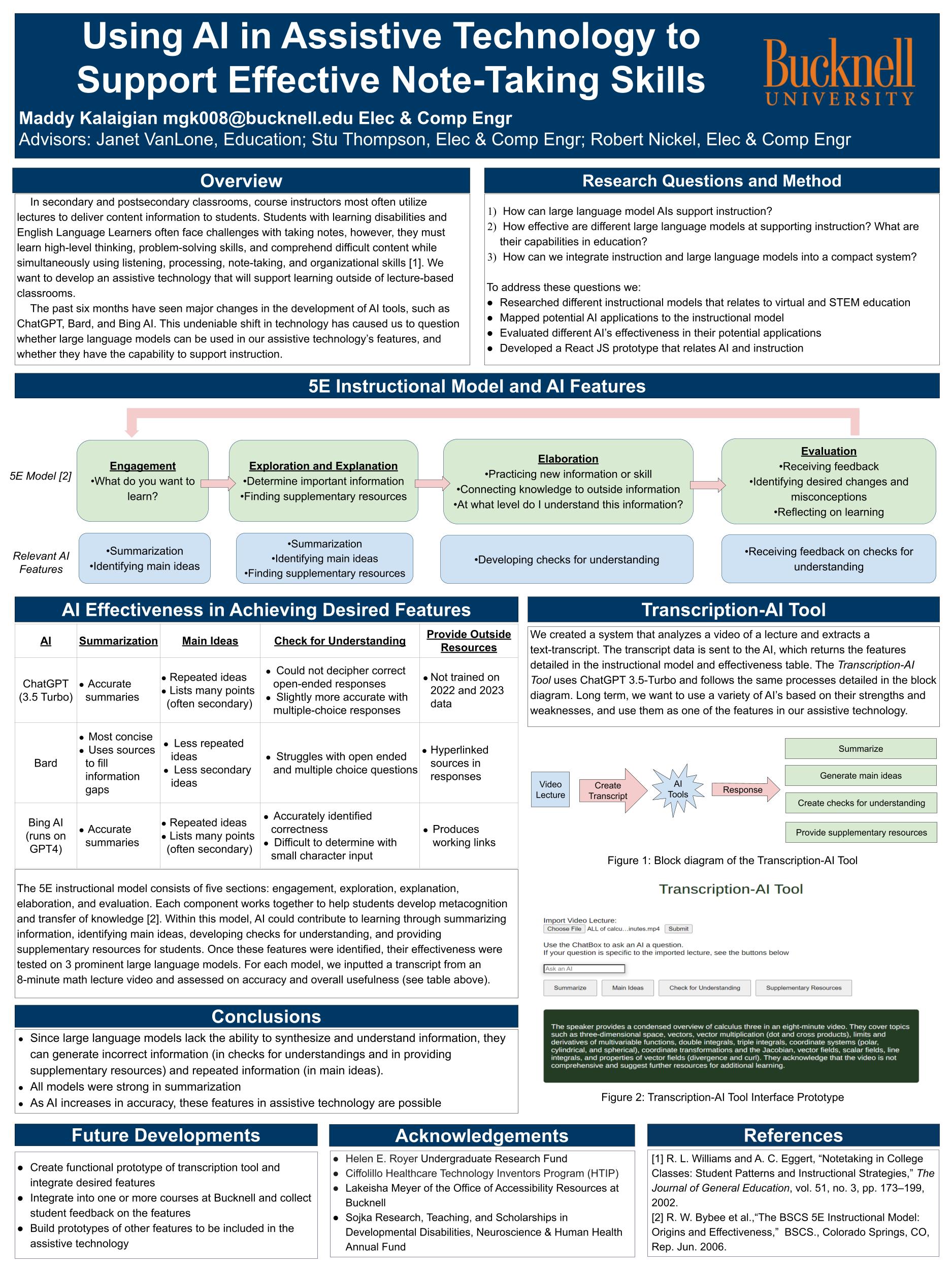
Using AI in Assistive Technology to Support Effective Note-Taking Skills
Author:
Maddy Kalaigian ’26Co-Authors:
Faculty Mentor(s):
Stu Thompson: Electrical and Computer Engineering, Janet VanLone: Education, Robert Nickel: Electrical and Computer of EngineeringFunding Source:
Helen E. Royer Undergraduate Research FundAbstract
In the ever-evolving landscape of engineering education, we are at a point where traditional instruction can be supplemented by AI to bridge the gap between current and best practices in the area of universal access. We have analyzed the Explicit Instruction Model, which matches well with STEM teaching approaches in higher education, with a Universal Design for Learning (UDL) lens to identify points in the instruction process where AI could support learning. From this activity, we determined that AI can facilitate learning through summarizing lecture content, identifying main ideas, developing checks for understanding, and providing supplementary resources for students. Once these features were identified, their efficacy was tested on three prominent generative AI platforms: ChatGPT 3.5, Gemini, and Bing AI. We created a prototype that analyzes a video of a STEM lecture and extracts a text transcript. The transcript data is then sent to the AI platform, which returns summaries, main ideas, checks for understanding, and supplementary resources pertaining to the lecture.
We are investigating more AI-powered tools, focusing on their ability to provide real-time feedback and adapt to individual student needs. Additionally, various metrics and assessment strategies are under consideration to allow educators to quantify the impact of AI on student engagement and learning. In the future, we plan to deploy the AI prototype to collect Bucknell student feedback. By drawing a clear connection between explicit instruction models, UDL, and AI, engineering instructors can create more effective learning experiences for their students.